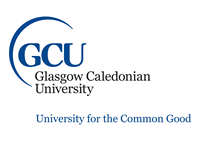Dr A Escudero
No more applications being accepted
Funded PhD Project (European/UK Students Only)
About the Project
This project is one of 16 four year PhD Studentships funded by Medical Research Scotland (https://www.medicalresearchscotland.org.uk) to be delivered jointly by the named University and External Partner Organisation (EPO). The Studentship will provide the first-class academic and additional training provided by the EPO needed to equip the successful candidate for a science career in an increasingly competitive market.
"Microalgae as an alternative for antimicrobial resistance pressure reduction" to be delivered by Glasgow Caledonian University [Supervisors: Dr Ania Escudero (Deptartment of Civil Engineering and Environmental Technology), Dr Janice Spencer (Deptartment of Life Sciences) and Dr Colin Hunter (Deptartment of Civil Engineering and Environmental Technology)] and Scottish Water (https://www.scottishwater.co.uk/) [EPO supervisor: Ms Tamsyn Kennedy].
It has been reported that the spread of antimicrobial resistance (AMR) could result in the premature deaths of 10 million people every year by 2050. Continual exposure to sub-lethal levels of antibiotics and concentrations of heavy metals are a primary driver for AMR development and maintenance. This is becoming recognised in the context of One-Health, in addition to five antibiotics (amoxicillin, azithromycin, ciprofloxacin, clarithromycin and erythromycin) having being added in 2018 to the Water Framework Directive. An important route for the transfer of AMR in the environment is considered to be the sewerage network where a key potential control point is the wastewater treatment plant (WWTP).
Aiming to reduce the concentration of antibiotics in the aquatic environment is necessary. GCU has demonstrated the potential of a novel application of the microalgae Chlamydomonas acidophila in the degradation of antibiotics under laboratory conditions. This PhD project will build on the research work conducted by GCU and Scottish Water to demonstrate this novel biological approach to the removal of antibiotics at Scottish WWTPs.
The overall aim is to assess the levels of antibiotic contamination of wastewater entering and being released from rural Scottish WWTPs and investigate the link with the increased presence of AMR bacteria. The use of an innovative microalgae technology will be investigated as an alternative method to reduce this contamination. This main objective is divided in the following sub-objectives:
1. Investigate the occurrence and spread of AMR genes and potential drivers within 3 rural WWTPs by:
- Monitoring the bacterial diversity in the biofilms present at WWTPs and assessing the presence of AMR genes.
- Monitoring the presence of the five antibiotics listed in the Water Framework Directive’s Watchlist at the WWTPs in both solid and liquid phase.
2. Evaluate the ability of Chlamydomonas acidophila to reduce levels of antibiotic and the number of AMR genes in wastewater by:
- Investigating the ability of this microalgae to remove the five selected antibiotics from the wastewater in order to reduce AMR gene spread.
- Assessing the ability of this innovative technology to reduce the bacteria and pathogens present in the final effluent due to its operational low pH.
- Investigating the change in microbiome composition associated with the exposure to the microalgae.
- Evaluating the feasibility and deployment of this technology by monitoring AMR genes, levels of antibiotics and microbiome stress in a 500L microalgae reactor implemented at a rural WWTP.
ENQUIRIES:
Enquiries should be sent by email to Dr Ania Escudero:
[Email Address Removed]
APPLICATIONS:
Applicants must have obtained, or expect to obtain, a first or 2.1 UK honours degree, or equivalent for degrees obtained outside the UK, in an appropriate scientific discipline. An MSc in a relevant area is advantageous. A valid IELTS certificate, with a score: 6.5 or better for relevant applicants, is required.
Applications must be submitted online by following the instructions at
https://www.gcu.ac.uk/research/postgraduateresearchstudy/applicationprocess/
When submitting your online application, please include Project Reference Number SCEBE-20-022-AE-MRSF, provide a CV, the contact details of 2 referees (including email addresses) and a covering letter outlining (maximum 1000 words) why the candidate believes there is a need for the proposed research to be undertaken.
.
Please note, your application may be shared with the funders of this PhD Studentship, Medical Research Scotland and Scottish Water.
Interviews are expected to take place 3-4 weeks after the closing date for applications. In light of the current coronavirus situation, interviews may be conducted by video conference.
It is anticipated that the PhD Studentship will start in October 2020.
Funding Notes
PhD Studentship provides: an annual tax-free stipend of £17,500, increasing to £18,000 over the four years; tuition fees at UK/EU rates only; consumables; and generous travel allowance. International fees are not covered.

 Continue with Facebook
Continue with Facebook

